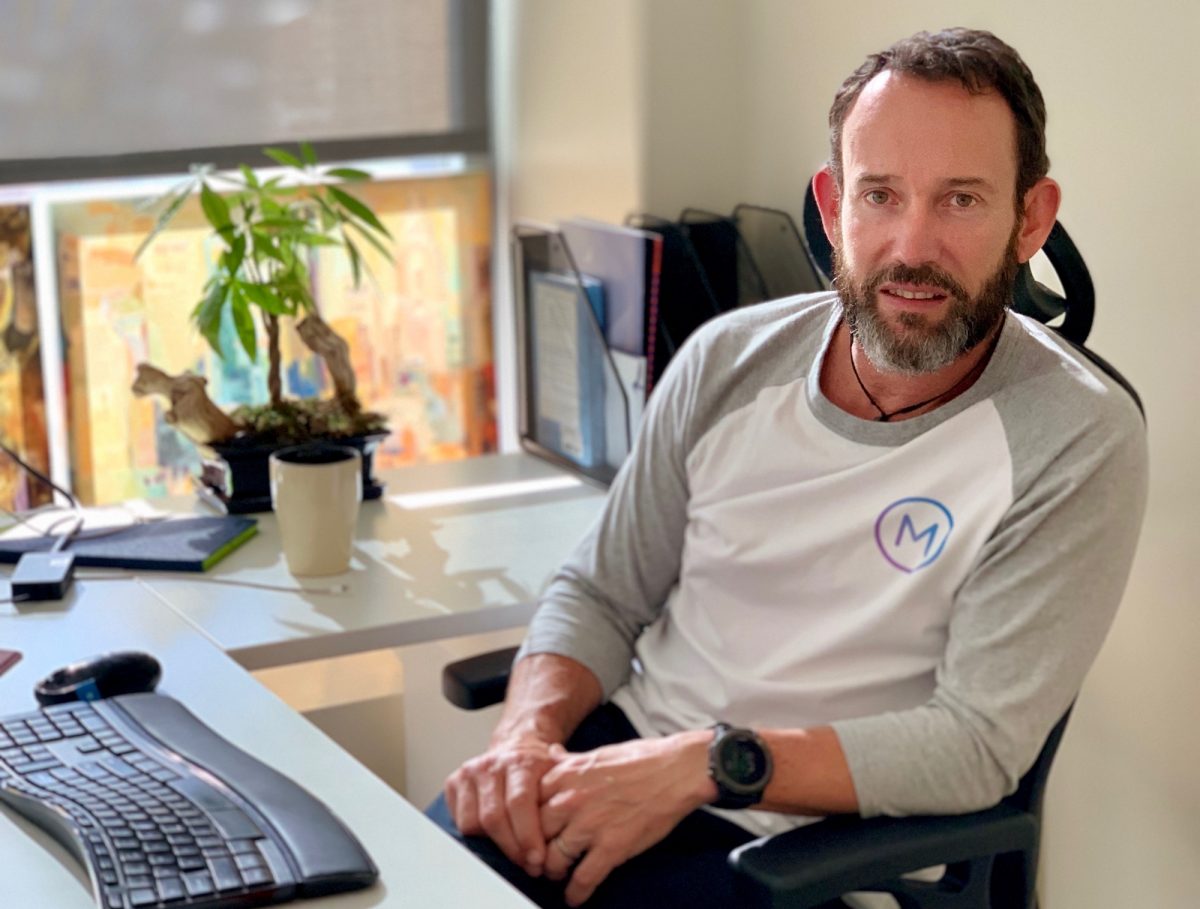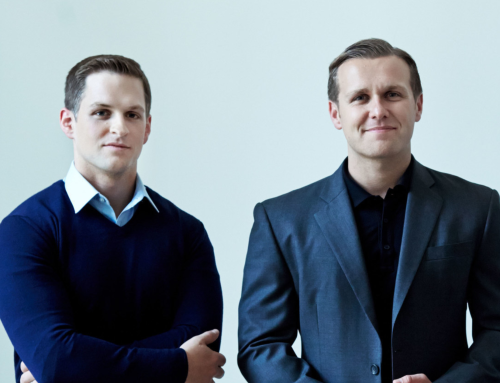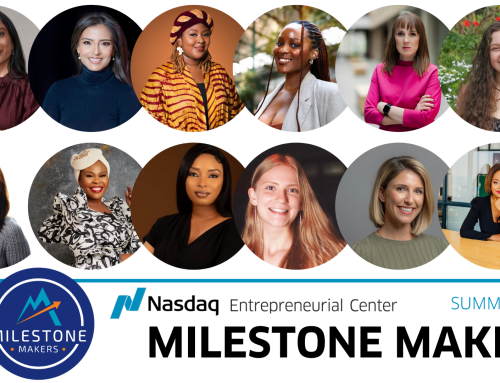Brent (Spice) Spicer is co-founder and Executive Director of Marsello, a small retailers virtual marketing assistant. Maresllo takes customer data, understands what marketing works, and builds marketing campaigns on behalf of the retailers. The Nasdaq Entrepreneurial Center took a moment to catch up with Spice on his journey thus far.
What does “entrepreneurship” mean to you?
BS: To me entrepreneurship is partly about being able to spot big opportunities because you have a positive and open outlook, but mostly about doing something to capitalize on them. Taking risks, when others think you’re crazy, and the ability to execute are key.
How did your company come to be? (describe the a-ha moment that lead to its conception)
BS: My co-founders and I started Marsello because we wanted to help small retail business owners compete with the marketing power of the big guys. We’re from New Zealand where 98% of businesses are SMB’s and we saw that the marketing tools that they had at their disposal, from directories to offline advertising to daily deals, didn’t help them build sustainable, profitable sales. With the SaaS business model it became possible to build and distribute affordable, sophisticated marketing tools to small retailers all over the world. However, what we discovered was that even if you give them these tools, most of these retailers don’t use them because they’re very busy operationally running their business and they’re not marketing experts. They need help with what marketing to do.
That’s when we pivoted to building Marsello, a small retailers virtual marketing assistant. Marsello takes the customers, product and transactional data from thousands of small retailers, understands what marketing works for a type of retailer to cohorts of customers and builds the marketing campaigns on behalf of the retailer. All they need to do is approve it. So far, Marsello is generating a 13 times return on the subscription fees they pay us. There was no a-ha moment as such, as this is a big problem that has always been around. When I met my co-founders we just had a belief that it was a big problem that needed to be solved and although many people had tried, we believed we could be the ones who finally did it.
What is the biggest experience or lesson gained on your journey so far?
BS: I’ve learned a lot from the Lean Startup methodology – hypothesis, experiment, look at the data and then iterate. We’re continually learning by running tests and not making assumptions.
How is your company changing the landscape?
BS: Contrary to what you read, physical retail is not dead. Yes, there are a lot of large retailers who didn’t keep up with the times going bankrupt but small, particularly niche and boutique retailers are thriving. And the ones that are doing best have an online and physical store presence. But to compete with the big guys they need to do the best marketing but can’t afford marketing departments or agencies. So through communitizing large amounts of data for the benefit of the individual retailer Marsello is giving small retailers the marketing smarts they never had access to before.
What advice/credo do you live by as you grow the business / what is your professional and personal mission statement?
BS: “Everything happens for a reason – you just need to understand what the reason is”. If you have a positive attitude, you’ll find good in even the bad things that happen. That will aide in being resilient and the difficult journey of starting and growing a business.
What’s it like to work alone or with your partners? What advice do you have for fellow entrepreneurs about building and leading teams?
BS: Having co-founders is absolutely essential. The stats prove it and I think most early stage VC’s don’t invest unless there’s 2-3 founders. You’ve got to have people to share the risk with and the ups and downs. And when one of you is down, hopefully the others are up and can rally you.
From a building a team perspective, don’t expect everybody you hire to be an entrepreneur as well. You can still hire great people who are looking for a great job but won’t work the hours that you do or approach everything entrepreneurially. If they were an entrepreneur, they’d be running their own business!
Where do you find inspiration when faced with challenges?
BS: Through a close network of advisors who have been there and done that, and through fellow entrepreneurs on a similar journey. Also from the TV series Silicon Valley, it helps you laugh at the mistakes you make.
What does “success” look like for you? What do you think will help you achieve it?
BS: Success in life for me is measured by the “net” number of lives you have positively impacted and to what extent. I say net because I think it’s very difficult to go through life and not negatively impact some people, no matter how hard you try. So you need to subtract the negatives from the positives. If you treat people the way you want to be treated and always look for the potential in people it will get you there.
What is your proudest and darkest moment so far? Share a key high and a key low from your journey if you can.
BS: At one stage on the journey, we had banked on some big deals coming in which didn’t eventuate, but we had staffed up to cater for them. One weekend my co-founders and I met to come up with an emergency action plan as we only had enough cash left for one more full payroll.
On Monday morning we gathered the team together and told them we had to let 50% of them go with immediate effect. It was the hardest think I’ve ever had to do in my career as these people friends and comrades on our journey. And people that were prepared to remain would have to take a pay cut until we had things sorted.
After the initial shock, the support that we got from the team, stayers and leavers, was amazing. I quickly circled around my network of fellow startup entrepreneurs and found almost every one of the leavers a new job within a week or two. They almost all remains friends today.
Many entrepreneurs continue to perfect their daily routines to support their work and greater vision; would you mind sharing your morning routine or a regular ritual that grounds your work each day?
BS: On weekdays, I get up at 5:30 to train. On weekends it’s later, but the training is longer. I do triathlons so it’s running, biking or swimming. I believe that you can’t have a fit mind without a fit body.
Then I make breakfast for the family and we start our day together.
I catch the bus to work from East Bay and I start with 10 minutes of meditation (Headspace) then Duolingo (Spanish) then I catch up on email and any customer comms in Intercom. Then a walk to office ready to get into it!
What kind of an entrepreneur do you want to be known as, as in, what do you want your legacy to be?
BS: One who has facilitated others to be successful entrepreneurs.




Invite a Friend
Close